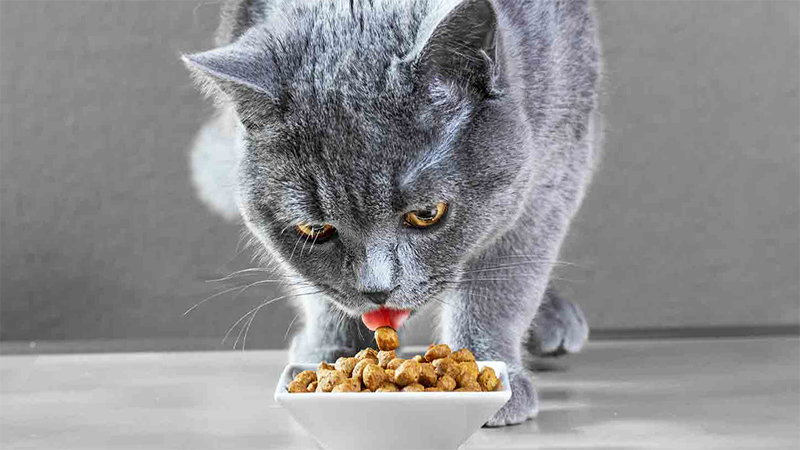Cats are more prone to urinary problems. These problems may vary from a superficial infection to kidney failure. It is heartbreaking to see your beloved pet in pain. You can only treat the problem when you know the situation. Most owners have a question, does dry cat food cause urinary problems? The answer is yes. Dry foods are related to urinary tract issues most the researchers say
Related Topics You Might Like:
Products Related To Topic
"(Paid Links)" ▶ As an Amazon Associate, We earn from qualifying purchases.
Feeding only dry food makes cats prone to urinary issues.
Cats who consume dry food frequently experience urinary problems, as you may have seen in your own cat experiences or heard from other cat owners. Since dry cat food is the most widely used type of cat food and feline lower urinary tract problem is one of the most prevalent feline diseases. There is insufficient evidence to conclude that dry food causes FLUTD.
Dry cat food could dehydrate your cat.
The fact that dry cat food causes chronic dehydration is the strongest argument against it. Cats must eat meat to survive. It means that cats not only can thrive on a diet of meat and nothing else, but they require it to survive. Plants are unable to provide cats with the nutrition they need. A cat would consume its prey whole in the wild. That prey, primarily made of water, is very hydrating on its own. The cat would subsist on its prey and possibly a small amount of water. Due to their naturally low thirst drive, they hardly ever drink enough water to make up for a dehydrated diet.
It's unlikely that cats who eat dry food will chug enough water to make up for the dryness of their food ultimately. Even though they typically drink more water than cats who eat wet food. Proper hydration is necessary for the urinary tract, which includes the bladder and kidneys so that urine can flow through the system continuously. It won't occur without adequate hydration, and urinary tract disease may result.
Life-threatening health problems in cats caused by dry food
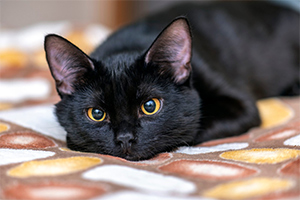
Diabetes:
The sugars not stored as fat linger in the bloodstream and cause blood sugar levels to rise in cats because they have a poor carbohydrate metabolism. Many diabetic cats that switched to a low-carb, all-canned food diet were able to wean themselves off insulin successfully.
Low-fat, high-carbohydrate "light" diets have historically been used to treat this severe and regrettably widespread health issue. When fed premium canned food, most cats will lose weight.
Feline Lower Urinary Tract Disease (FLUTD):
Cats who have kidney or bladder stones run the risk of dying. Dehydrated cats produce highly concentrated urine, raising the risk of developing kidney stones. The urinary tract system will maintain the proper water flow with a diet high in canned food.
Inflammatory Bowel Disease (IBD):
Numerous anecdotal accounts of cats with IBD who experienced a dramatic improvement after cutting out all dry food from their diet.
Dental Disease:
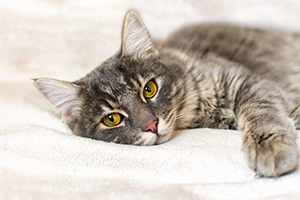
The enduring misconception that feeding your cat dry food will keep its teeth clean is exaggerated, untrue, and unsupported by current research. Vets advise daily tooth brushing and professional cleanings for good oral health once or twice a year.
Kidney Disease:
Chronic dehydration affects cats who are fed primarily dry food. Kidney failure in cats is caused mainly by chronic dehydration.
How to improve your cat's urinary health
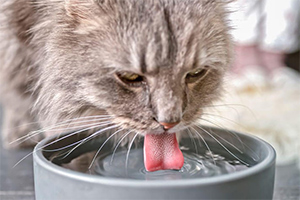
Increase Your Cat's Water Intake
Increased urine water content dilutes potentially harmful toxins, minerals, and urinary irritants. Irritants can cause chronic bladder inflammation, and concentrated urine increases the risk of crystals and kidney stones. The best way to keep your cat's urinary tract healthy is increase her water intake.
Additionally, drinking more water will help your cat stay hydrated and urinate more frequently, which will help remove toxins and keep its kidneys functioning properly.
Reevaluate Your Cat's Diet
Urinary diets on the market with specific amounts of minerals, protein, and bladder protectants help to maintain a healthy urinary tract, may be beneficial for your cat if she has experienced prior urinary health issues. Minerals like calcium, phosphorus, and magnesium are restricted in urinary diets, forming urinary crystals and stones. They are also designed to acidify your cat's urine, slightly preventing crystal formation. Reduce the environmental
Stress on your cat.
Cats are sensitive to environmental stressors, which have been connected to incontinence in urination and feline lower urinary tract disease, which results in chronic bladder inflammation. Cats with the condition experience bladder pain and risk developing a potentially fatal urethral obstruction.
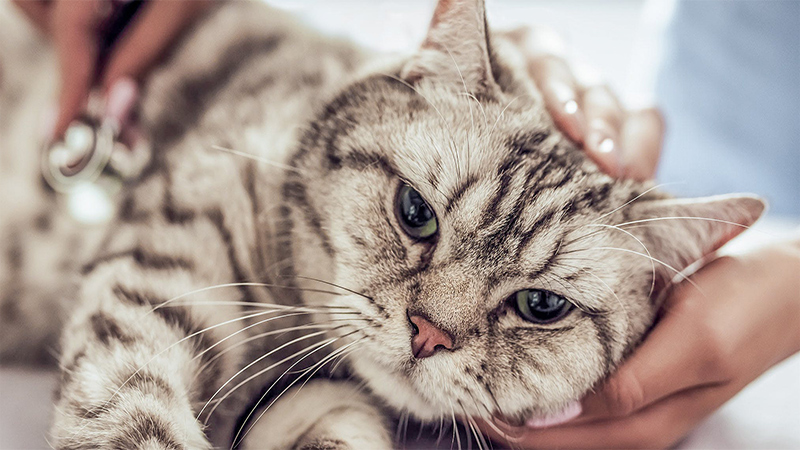
Provide Environmental Enrichment for Your Cat
The safest environment for your cat is indoors. Still, a bored cat is more likely to experience stress-related urinary conditions. Being natural predators, cats enjoy playing with toys and engaging in activities that let them unleash their inner lionesses.
Schedule Regular Veterinary Appointments for Your Cat
Cats require routine veterinary care, and during your cat's yearly wellness examination, your family veterinarian can look for symptoms of underlying urinary conditions. Cats over eight should visit the vet more frequently to stay healthy. At every visit, a urinalysis can be done to check your cat's urine for indications of infection, inflammation, and kidney dysfunction. Blood tests will assess your cat's kidney health and can identify kidney failure, the most common cause of death in cats, in the early stages, when treatment may be beneficial.

